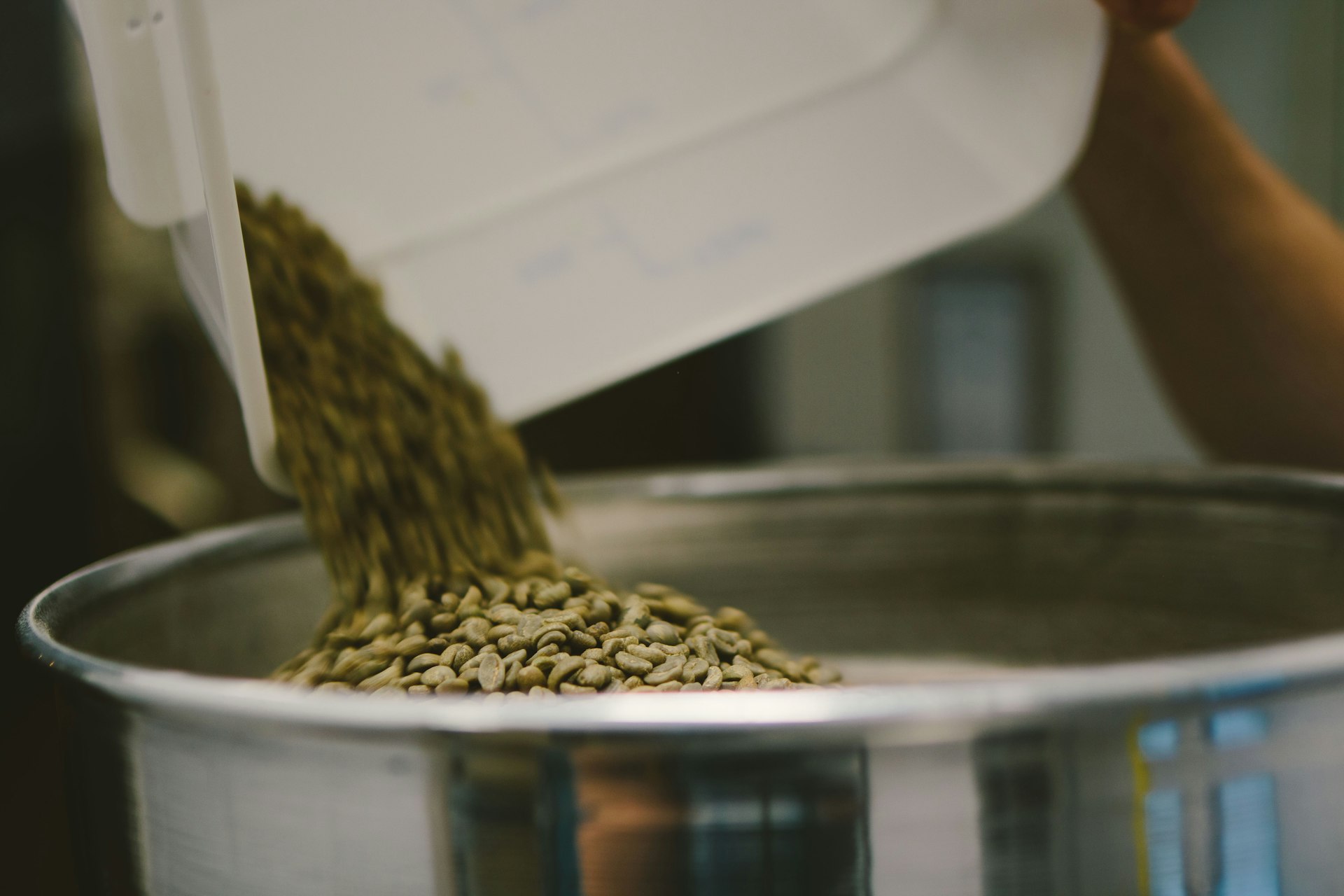Once dismissed as bland, decaf coffee is undergoing a significant transformation in the specialty market. According to recent market data, decaf coffee demand is projected to grow at a CAGR of 7.3% through 2028, driven by wellness trends, sleep-conscious lifestyles, and increasing awareness about caffeine sensitivity.
But how is decaf coffee made, and why is the demand for specialty decaf coffee skyrocketing?
To answer that, we're thrilled to share this guest post from Velma Martinez, a sustainable marketing expert at Tiny Footprint Coffee. In the article below, Velma speaks with key voices across the supply chain—from importers and roasters to wellness experts about the quiet revolution redefining what decaf can be.
Whether you're a small-batch roaster or exploring custom decaf processing, Solai Coffee offers farm-direct green beans in small or bulk quantities.
Explore Green Coffee Options

The Quiet Revolution: Inside the Decaf Movement in Specialty Coffee
For decades, decaf coffee carried a stigma, a necessary compromise for those who are sensitive to caffeine. But times are changing. Today's specialty decaf coffee is crafted with care, flavor, and intention, and more consumers are taking notice.
A growing number of roasters, green buyers, and importers are giving decaf the attention it deserves, investing in improved processing methods, sourcing higher-quality beans, and contributing to a shift in public perception.
To understand this shift, I spoke with several key players across the supply chain who are leading the charge.
Decaf No Longer an Afterthought
"When I started in coffee, decaf was something you kept on the menu because you had to," says Lucía Gómez, green coffee buyer at a boutique roasting company in California. "Now, we're choosing decaf lots with the same care we give to our fully caffeinated offerings."
The change, Lucía explains, is primarily due to improvements in decaffeination methods.
Water-based processes, particularly the Swiss Water Process and Mountain Water Process, have gained popularity for preserving coffee's natural flavors without the use of chemical solvents.
"These methods changed everything," she says. "They allow us to retain the terroir and tasting notes we love, so you can still taste the origin."
You may also like: What is Decaf Coffee
The Role of Importers: Curating for Quality
Importers play a pivotal role in making high-quality decaf accessible. Marcelo Ruiz, a coffee importer based in New York, recalls the challenges of getting clients excited about decaf just a few years ago.
"Most roasters didn't want to talk about it, some wouldn't even cup decaf samples," he says. "Now we have customers asking when the next micro-lot of water-processed decaf is arriving. That's a big shift."
Marcelo has partnered with producers in Latin America to create decaf-exclusive lots, often selecting cherries at peak ripeness before processing.
"These aren't just 'leftover' coffees," he says. "They're crafted from the start with flavor in mind."
Roasters Rebranding the Decaf Experience
For roasters, one of the biggest hurdles has been breaking the "why bother?" mindset around decaf. But that's changing because consumer demand is rising.
"We're seeing more people who want to enjoy coffee all day but not the jitters," says Alicia Chen, head roaster at a café in Portland. "They're looking for flavor, not a buzz."
Alicia recently launched a decaf-specific series at her roastery, complete with detailed tasting notes and brewing guides. The response, she says, was overwhelmingly positive.
"People are excited to see decaf treated with care. When we give it the same platform as our other offerings, it sells and it earns respect."
Consumer Awareness and the Wellness Factor
There is also a broader cultural movement contributing to decaf's renaissance. Wellness-conscious consumers are paying closer attention to how caffeine affects their sleep, stress levels, and overall health.
Dr. Naomi Laird, a nutritionist and coffee blogger, sees this trend aligning naturally with specialty decaf.
"There's no shame in choosing decaf, and with better-tasting options available, people feel good about the decision," she says. "It's about empowerment, not sacrifice."
Related articles: The Future of Coffee: Trends, Challenges, and Sustainable Solutions
The Future of Decaffeinated Coffee
Decaf is no longer the forgotten cousin of the coffee world. Thanks to passionate professionals across the supply chain, it's gaining ground as a distinct category, flavorful, thoughtful, and full of potential.
The decaf movement isn’t just about providing an alternative, it’s about offering choice without compromise. As processing innovations continue and demand grows, the line between decaf and regular specialty coffee is becoming increasingly blurred.
Ready to Experiment with Green Coffee? Shop Now
Photo Credits: Images used in this blog post are for illustrative purposes only and are either sourced from royalty-free image sites or provided by contributing partners. All rights are reserved by their respective owners.
Guest Contributor

Velma Martinez
A seasoned marketing manager based in Minnesota, currently leading brand strategy and digital marketing efforts at Tiny Footprint Coffee.
The Rise of Specialty Decaf Coffee